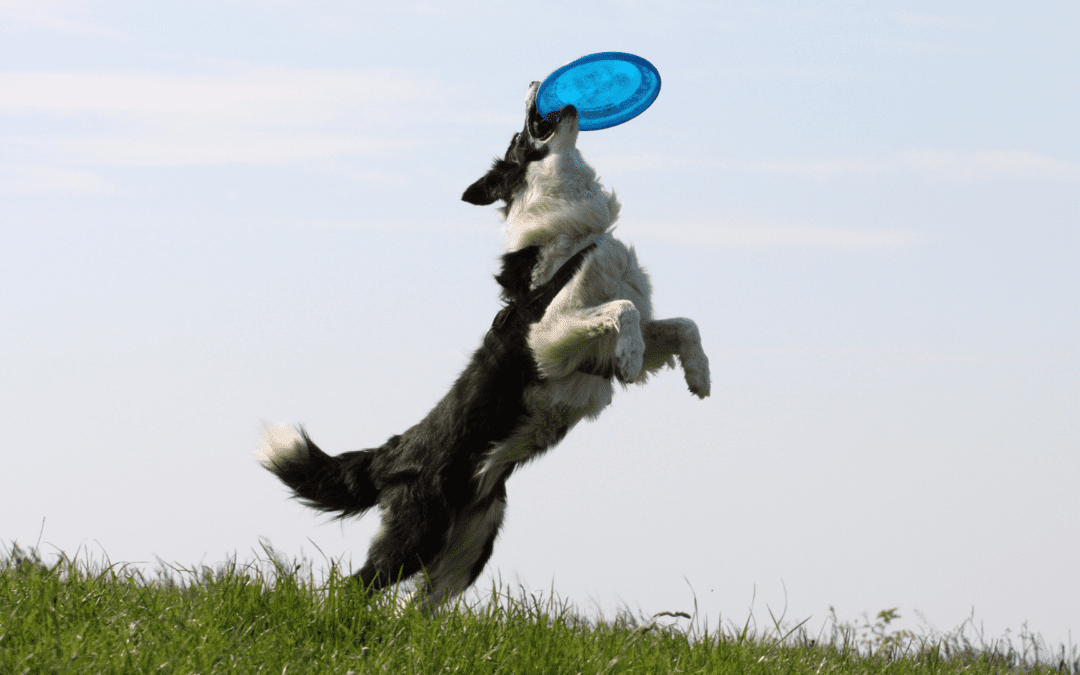Beyond Dog Wellness Exams: How to Support Your Dog’s Health
Regular dog wellness exams are essential for maintaining your pet’s health. However, there’s much more you can do to ensure your furry friend thrives.
Supporting your dog’s health goes beyond the exam room, and involves exercise, nutrition, mental stimulation, and a holistic approach to care. In this comprehensive guide, the veterinarians at Newport Mesa Animal Hospital describe how to promote overall well-being for your dog to support the benefits of regular wellness exams.
Exercise and Mental Stimulation for Your Dog
- The Importance of Physical Exercise
- Creative Ways to Keep Your Dog Active
- Mental Stimulation
The Importance of Physical Exercise
Regular physical activity is crucial for your dog’s overall health. It ensures they maintain a healthy weight, supports their cardiovascular health, and reduces their risk of chronic diseases.
Dogs of all ages and breeds benefit from regular exercise tailored to their specific needs. For example, active breeds, like Border Collies, may require more intense activities like running or agility training, while senior dogs might benefit from gentle walks.
Creative Ways to Keep Your Dog Active
Ensuring your dog stays active isn’t as difficult as you may assume. Incorporate fun activities such as hiking, swimming, and fetch to keep your dog engaged.
Interactive toys and games, like tug-of-war or frisbee, can provide excellent physical exercise. Remember, the key is consistency. Regular play sessions, even if short, contributes to your dog’s health significantly.
Mental Stimulation
Just like physical exercise, mental stimulation is vital for your dog’s well-being. Dogs are intelligent creatures that need cognitive challenges to stay sharp and happy.
Activities like puzzle feeders, scent games, and training exercises keep your dog mentally engaged. Regular training sessions stimulate your dog’s mind and strengthen the bond between you and your pet.
Healthy Lifestyle Choices for Dogs and Dog Owners
- Nutrition
- Weight Management
- Hydration
- Routine Grooming
- Dental Care
- Behavioral Health
Nutrition
A balanced diet is vital for the good health of your dog. Ensure your dog’s diet is appropriate for their age, breed, and health status.
High-quality commercial dog foods are formulated to meet nutritional needs, but you can also explore homemade diets with guidance from your vet. Avoid feeding your dog table scraps or unhealthy treats, and stick to nutritious options.
Weight Management
Maintaining a healthy weight is critical for preventing obesity-related health issues. Monitor your dog’s weight regularly and adjust their food intake and exercise routine as needed. Your veterinarian can provide guidance on portion sizes and dietary adjustments during a dog wellness exam.
Hydration
Proper hydration is essential, especially during hot weather. Ensure your dog has access to fresh water at all times.
Dehydration can lead to serious health issues. That’s why you must keep an eye on your dog’s water intake and watch for signs of dehydration, such as excessive panting or lethargy.
Routine Grooming
Regular grooming is more than just keeping your dog looking good; it’s essential for their skin and coat health. Brush your dog’s coat regularly to prevent matting and reduce shedding. Bathe your dog as needed and check for fleas, ticks, or skin issues during grooming sessions.
Dental Care
Dental health may be underappreciated but it’s crucial for your dog’s health overall. Poor dental hygiene can lead to serious issues like gum disease and tooth loss. Regularly brush your dog’s teeth with pet-safe toothpaste and provide dental treats or toys to help keep their teeth clean.
Behavioral Health
Behavioral health is an integral part of your dog’s overall well-being. Addressing behavioral issues through training and socialization can prevent stress and anxiety. Regular wellness exams for dogs provide an opportunity to discuss any behavioral concerns with your vet and get professional advice on managing them.
Integrating Dog Wellness Exams with Holistic Pet Care Practices
- Understanding Comprehensive Pet Care
- Complementary Therapies
- Nutrition and Supplements
- Environmental Enrichment
Understanding Comprehensive Pet Care
Comprehensive pet care involves looking at your dog’s health from all angles. It combines regular dog wellness exams with ongoing preventive care, proper nutrition, and mental & physical stimulation. This approach ensures that all aspects of your dog’s health are addressed through a balanced and thorough care plan.
Complementary Therapies
While traditional veterinary care is the cornerstone of pet health, incorporating complementary practices can enhance your dog’s well-being. For example, nutrition plans and behavioral training support the regular insights and treatments provided during a dog wellness exam.
Nutrition and Supplements
In addition to a balanced diet, certain natural supplements can support your dog’s health. Omega-3 fatty acids, for instance, promote healthy skin and joints. Always consult with your veterinarian before adding supplements to ensure they are appropriate and beneficial for your dog.
Environmental Enrichment
A stimulating environment is crucial for your dog’s mental and physical health. Provide a variety of toys, safe spaces, and opportunities for exploration and play. Regular changes and additions to your dog’s environment can keep them engaged and happy.
Ensure a Positive Dog Wellness Exam through Comprehensive Care
Supporting your dog’s health goes beyond regular dog wellness exams. By incorporating exercise, mental stimulation, a balanced diet, and comprehensive care practices, you’ll enhance your dog’s overall well-being.
Schedule a wellness exam for your dog at Newport Mesa Animal Hospital to ensure your pet is in top health and to receive personalized advice on maintaining their well-being. Contact us today to book your appointment and take the first step towards a healthier, happier life for your dog.

